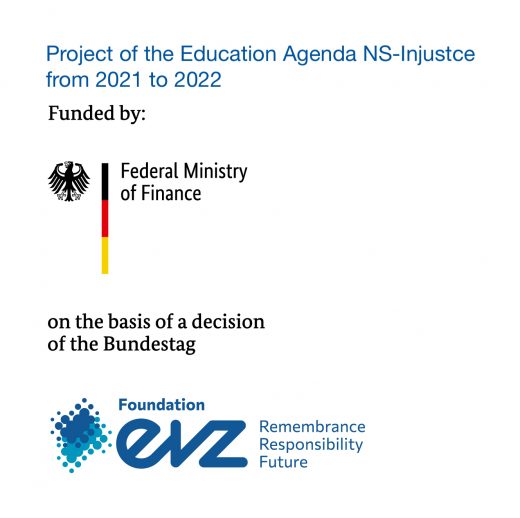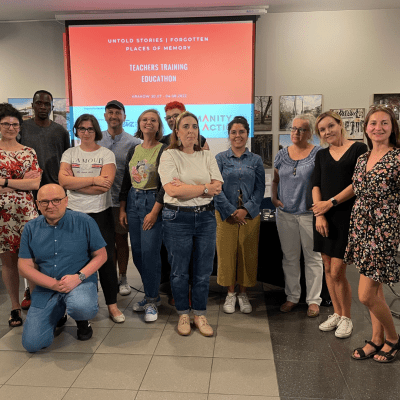Details
Article
>> On the 4th of August, we finished an intensive 5-day training for an international group of participants (teachers and educators) of our project. After months of meetings and workshops online, we were finally able to meet in person and work together during the “Educathon” in Krakow. What exactly did we do, what topics did we cover and what will come out of it all?
We started our Educathon with… a warm-up before the intensive work. Although we have known each other for a few months, and have been meeting online for workshops and discussions, there is no substitute for icebreakers in person.
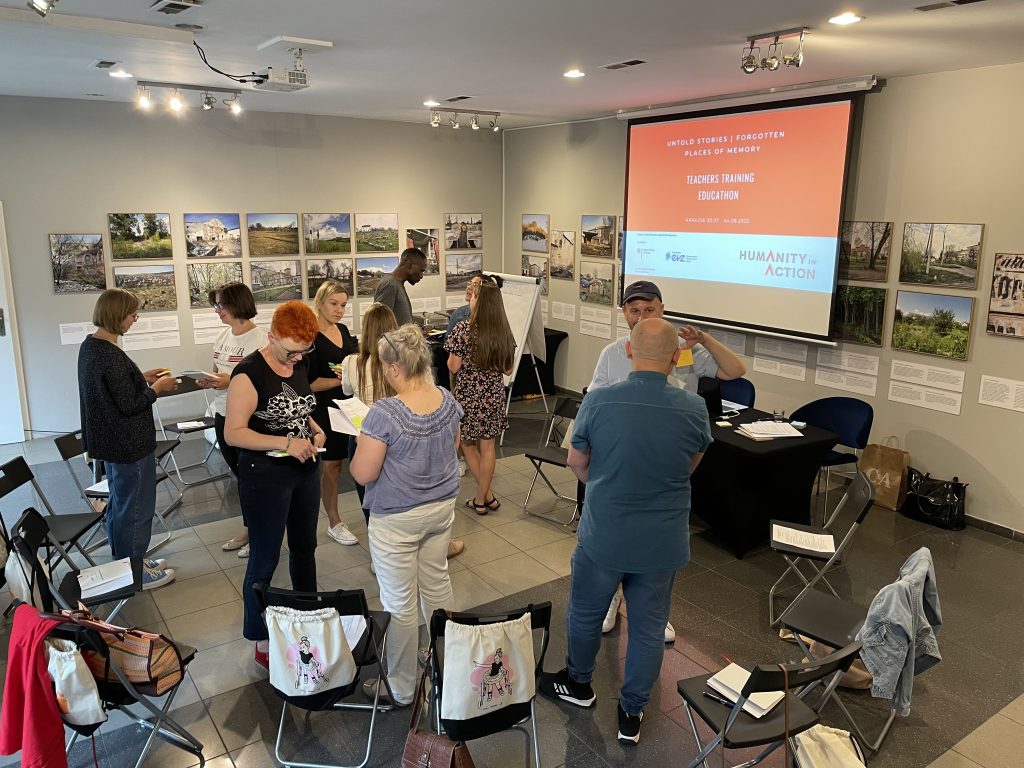
Charged with positive energy, the participants started planning their work and the process of creating educational materials, which will be the fruit of the “Untold Stories | Forgotten Places of Memory” project. We focus mainly on topics such as antisemitism, racism, discrimination and hatred towards the LGBTQI community. We look at them from a broader, interdisciplinary perspective, as the participants are educators and teachers of various subjects, including history, Polish, English, German, ethics and civic education. All materials will be available free of charge online.
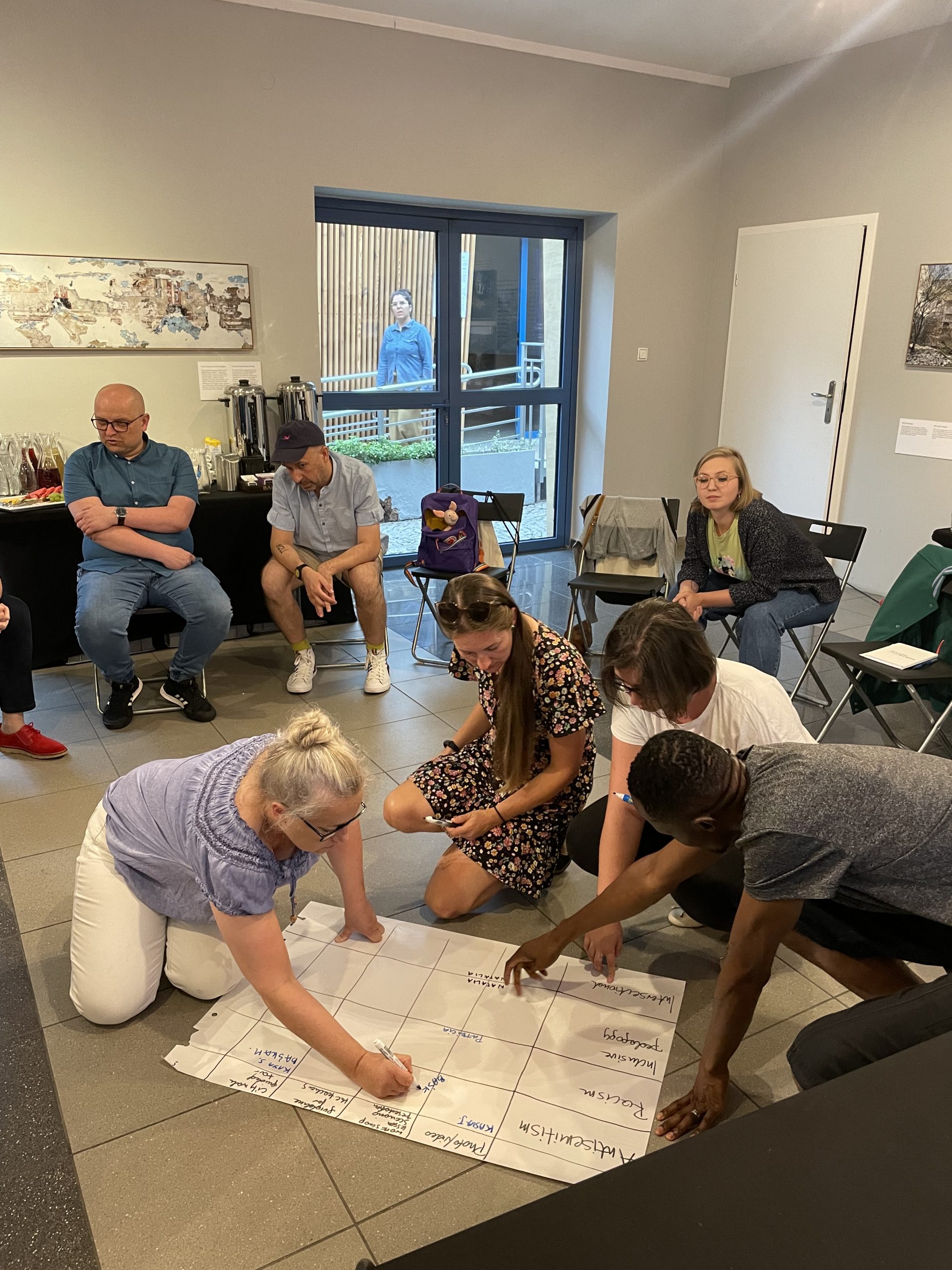
“Antigypsyism – the last acceptable racism in Europe?” With this provocative question, the meeting with Dr Małgorzata Kołaczek (vice president of Towards the Dialogue Foundation) began. Participants in the project “Untold Stories | Forgotten Places of Memory” learned many facts about prejudice and discrimination against the Roma, both historically and in the present day. We also talked about the extremely difficult situation of Roma refugees from Ukraine. In this context, we wondered what could be done, and what actions could be taken to challenge the image of the Roma and to educate without prejudice about their history and culture.
This meeting was very eye-opening and thought-provoking.
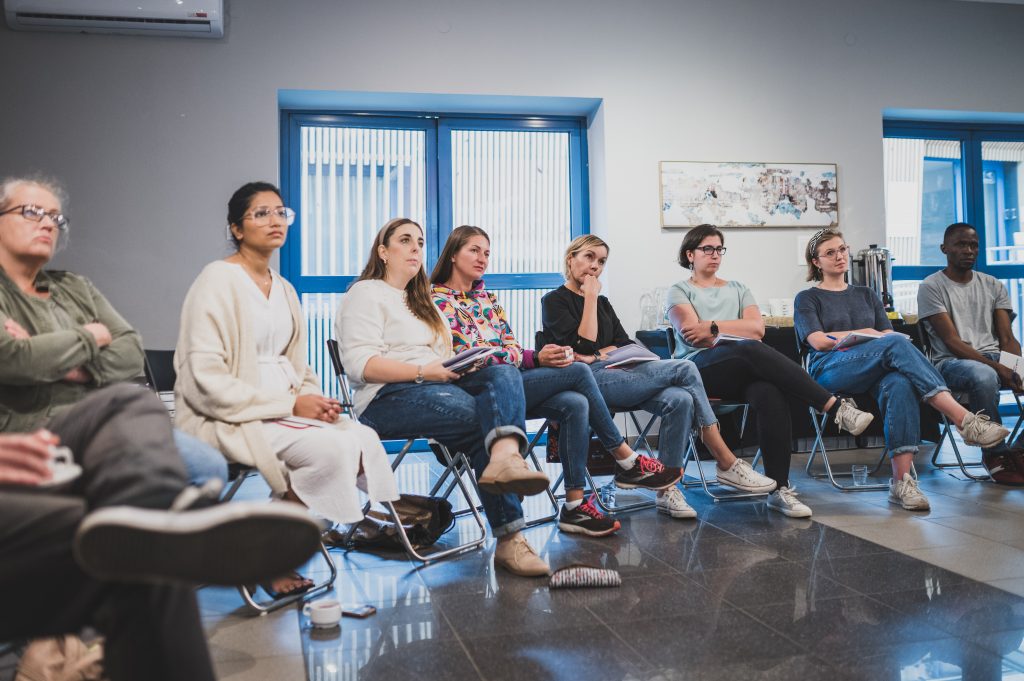
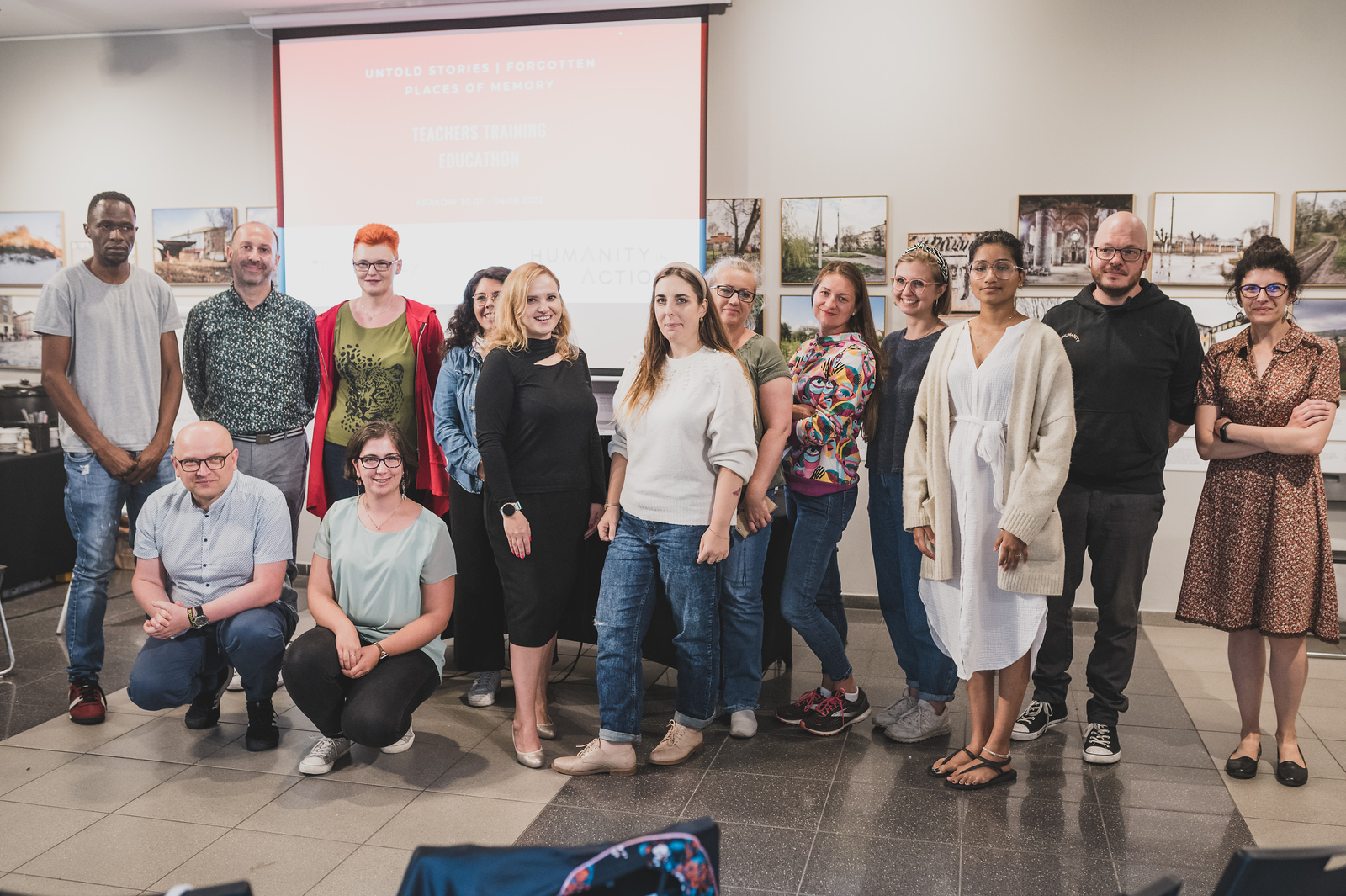
“How many Jews live in Poland?” This is probably the most frequently asked question by those interested in Jewish history and culture in Poland. At the meeting with Miriam Synger, we wondered why there is no single good answer to it. Miriam runs an account on Instagram where she educates about Judaism and Jewish culture, but above all about equality and tolerance. Our meeting was an opportunity to dispel many myths, confront stereotypes and take a deeper look at Jewish culture and tradition. Some of the participants of the project “Untold Stories | Forgotten Places of Memory” are preparing educational materials on anti-Semitism. This meeting certainly helped them to look at the topic from a different perspective and to discuss their questions.

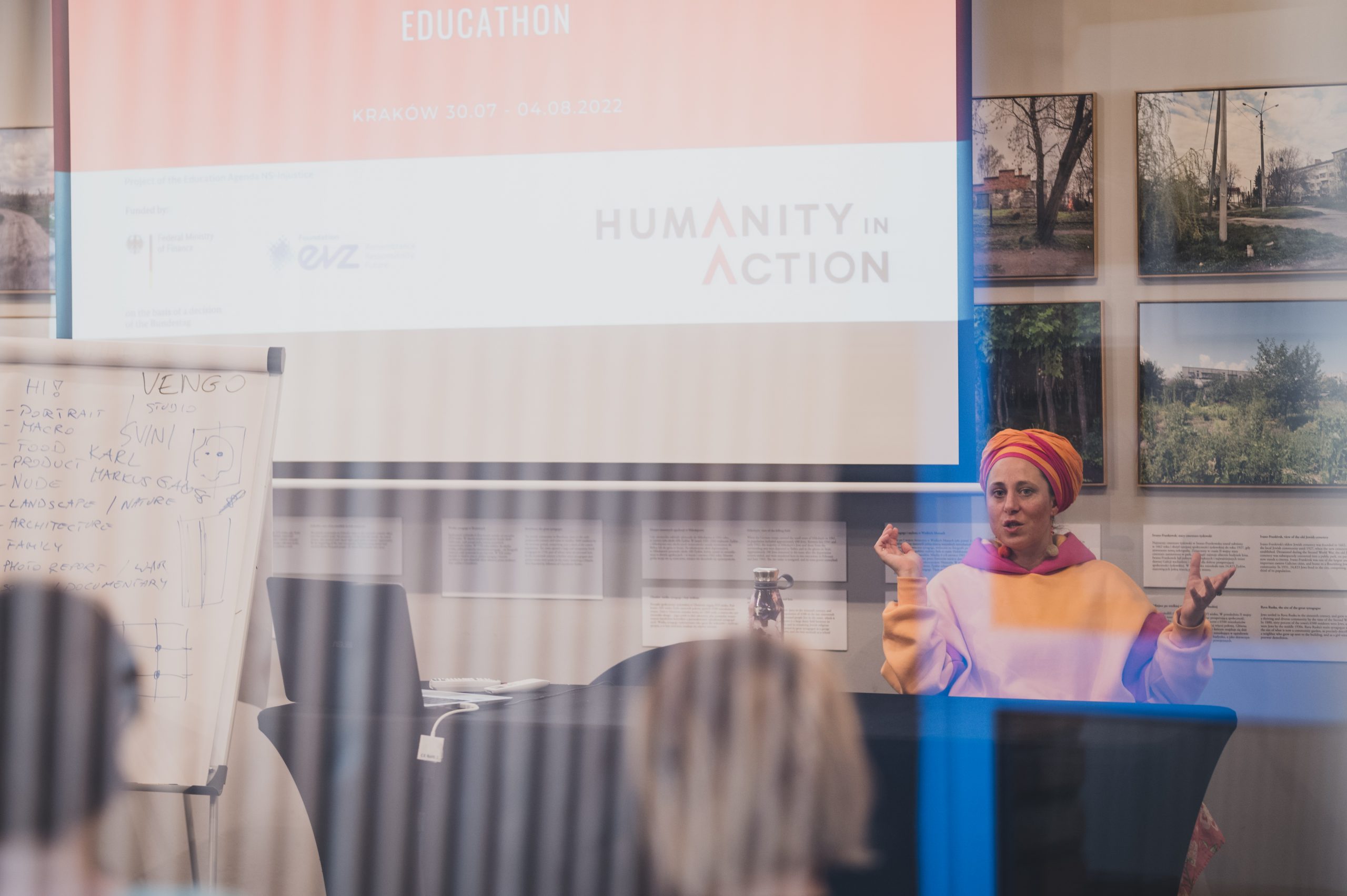
The Teachers’ Training program is very practical. Also during the Educathon, participants had a chance to learn many methods and ways of discovering and talking about untold stories, and forgotten places of memory. One of the inspirations was shown during the outdoor workshop by Janina Naskalska Babik a certified Krakow city guide. She documents and archives traces of mezuzahs in Krakow. We followed the trail she created by talking, asking questions and wondering what other traces of the past can be discovered if only we open our eyes wider, look from a different perspective or go through the usually closed doors. This meeting motivated and inspired the project participants to search for traces of memory in their hometowns and to bring back forgotten stories to the local communities.
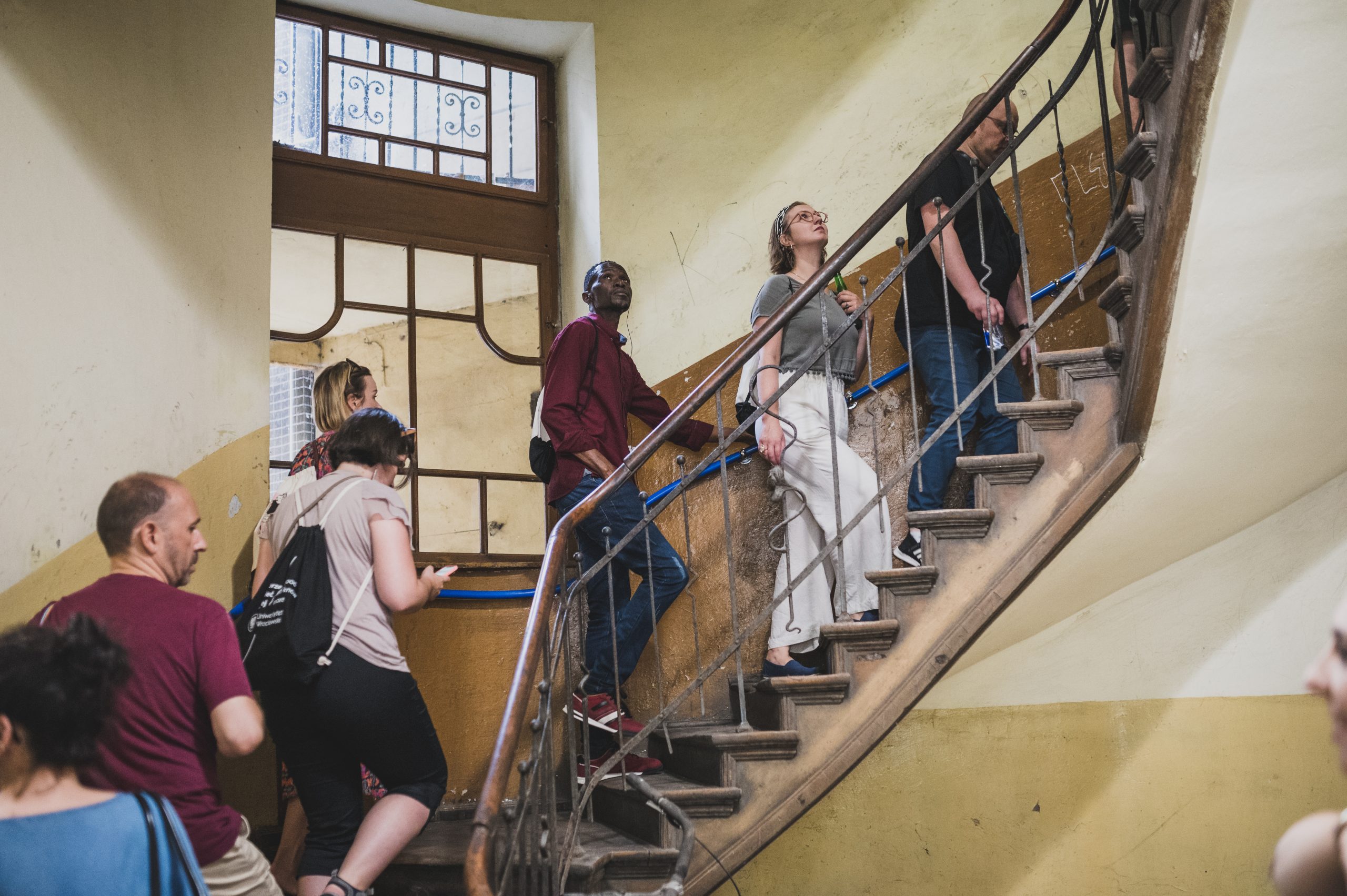
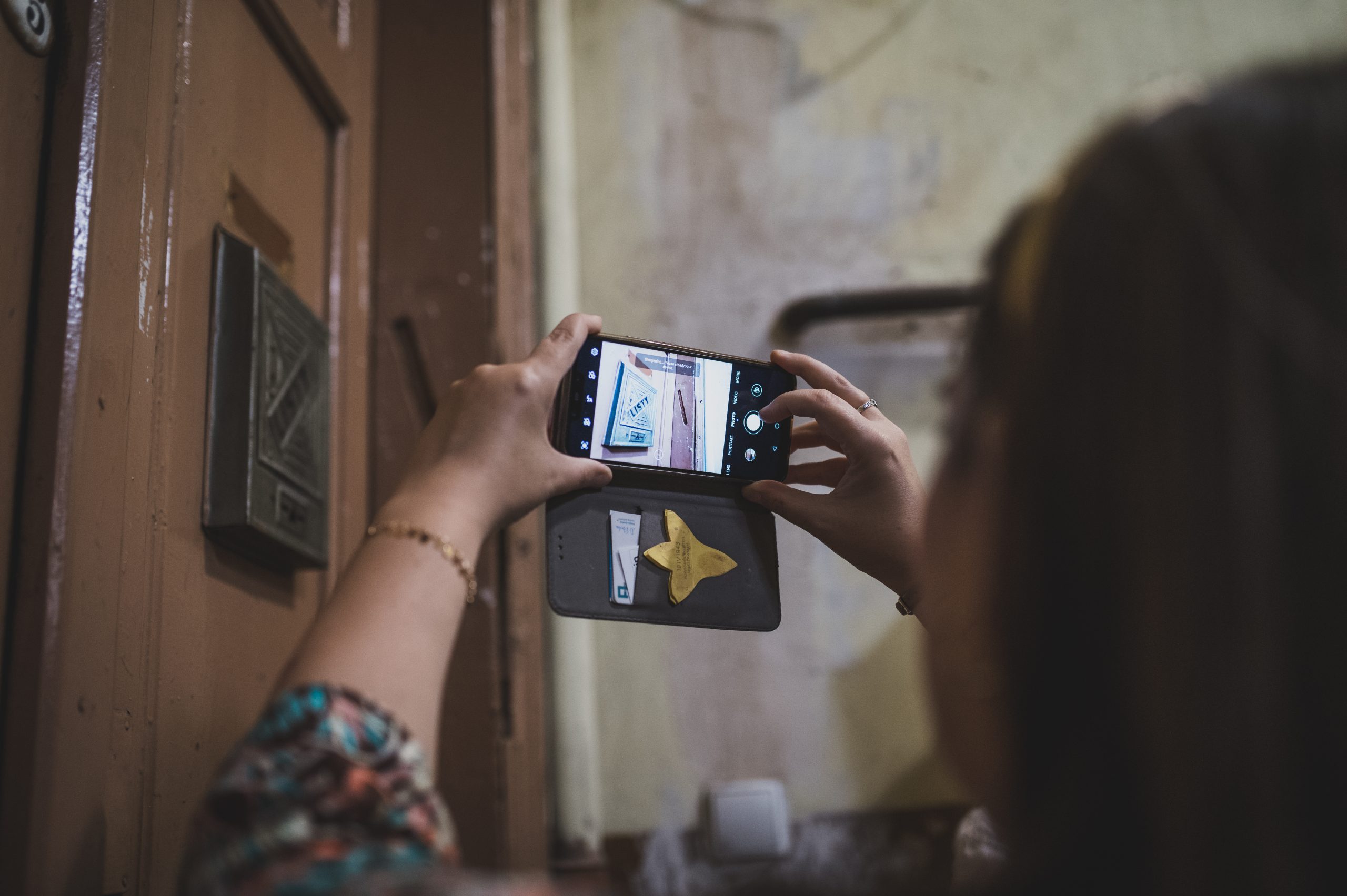
The visit to the Auschwitz-Birkenau museum and memorial was one of the most emotional and challenging parts of our programme. Confronting a complex history in a place such as the former German Nazi concentration and extermination camp Auschwitz-Birkenau is an extremely difficult experience, even for those who deal with the subject of the Holocaust or/and World War 2. The date of our visit there was not coincidental – we went there on 2 August, the 78th anniversary of the liquidation of the so-called “Zigeunerlager”, the Roma camp in Birkenau. This day is also the Roma and Sinti Holocaust Remembrance Day.
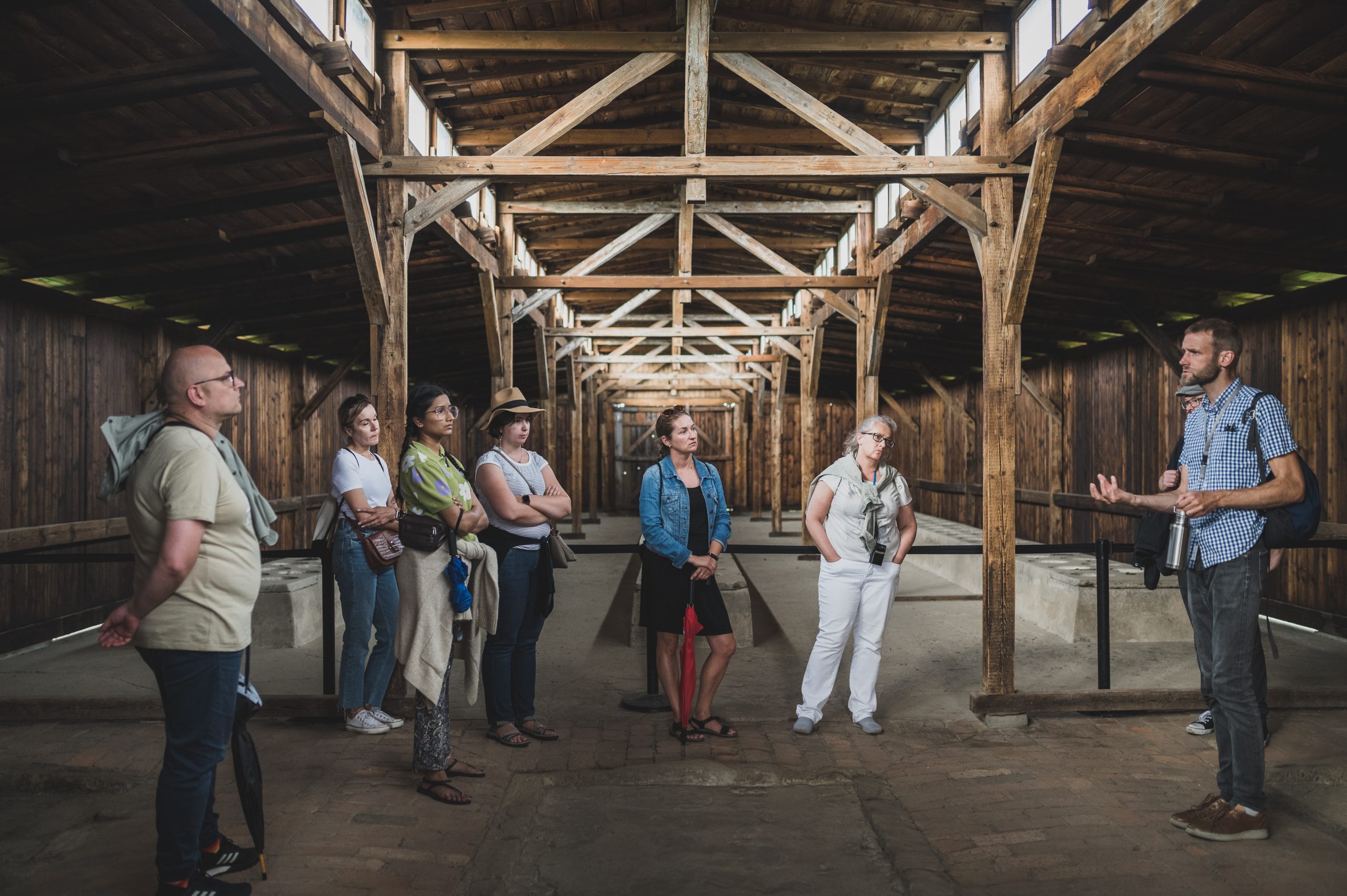

Participants of the “Untold Stories | Forgotten Places of Memory” project took part in official commemorations of the victims of this crime, listened to speeches and engaged in reflection.
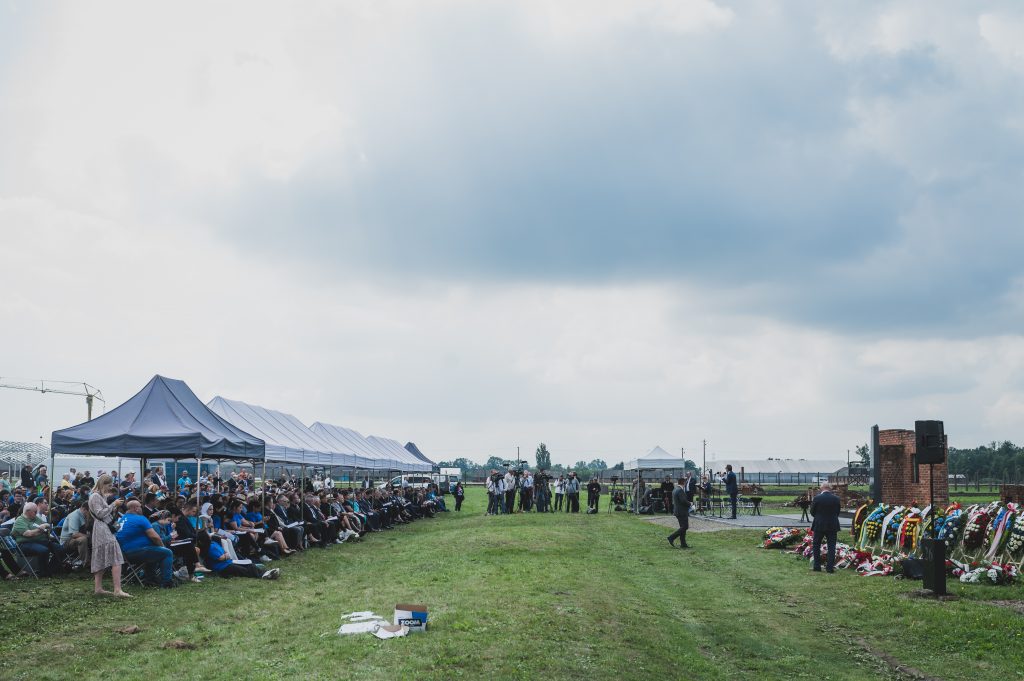
As Larysa Michalska, coordinator of the Teachers’ Training in the “Untold Stories | Forgotten Places of Memory” project at Humanity in Action Poland often mentions, we need to keep the balance! This includes educating about the difficult history and forgotten places. Having this in mind, in addition to the Auschwitz-Birkenau memorial site, we also visited the town of Oświęcim, with the Chevra Lomdei Mishnayot Synagogue and the Auschwitz Jewish Center.
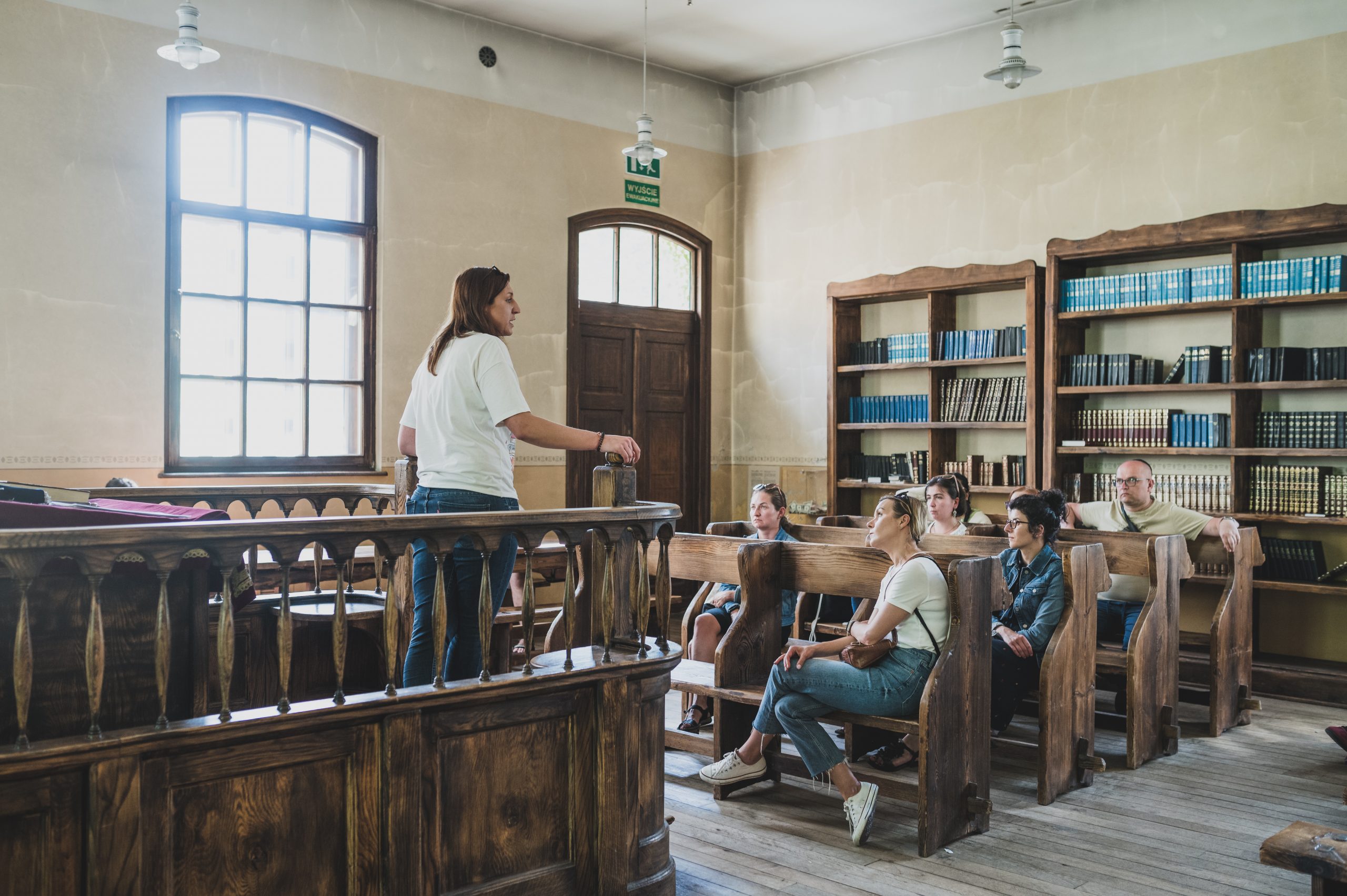
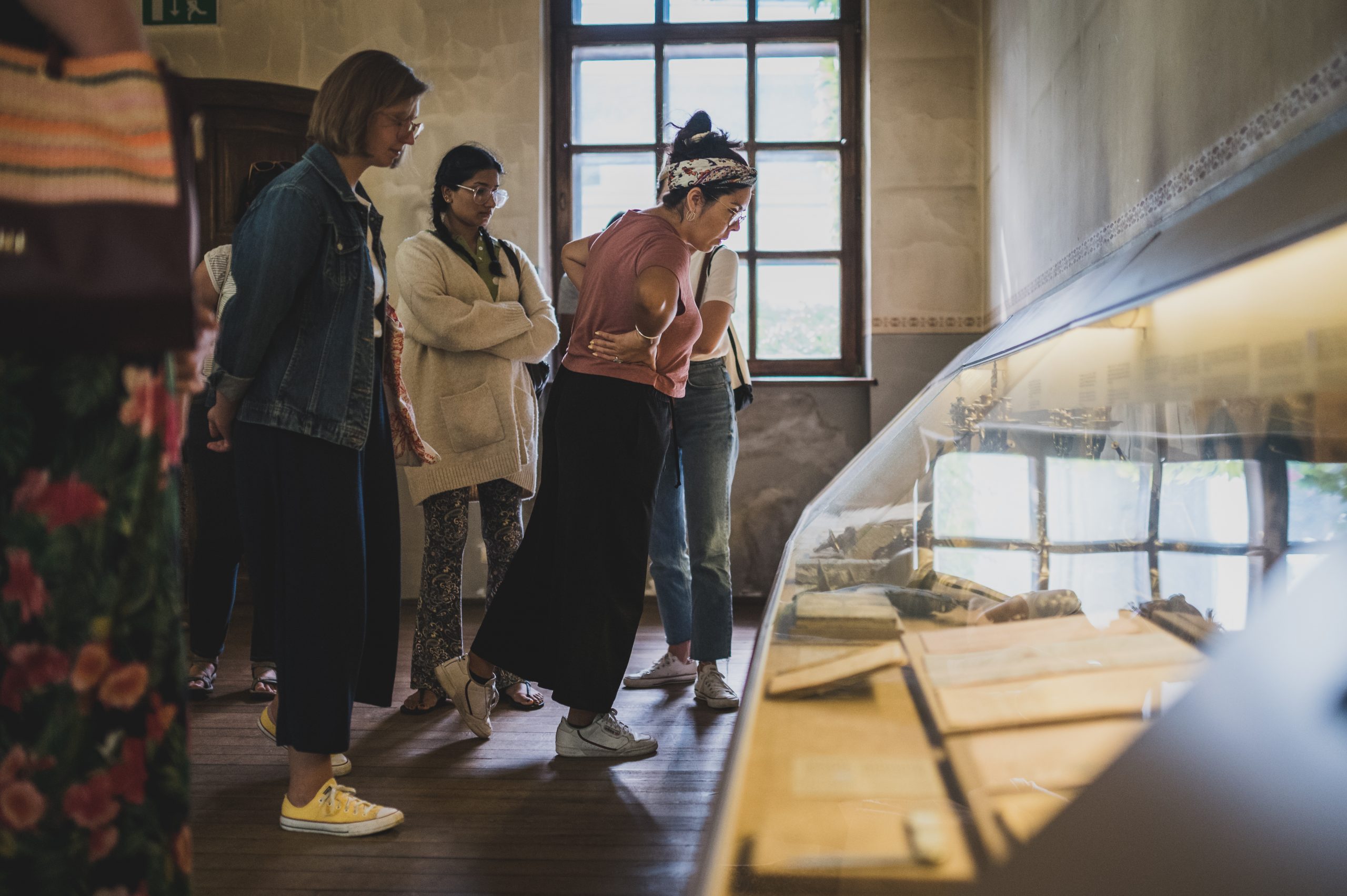
Our guide, Karolina Turza, told us about the rich Jewish history of Oświęcim as before the war, nearly 60% of the town’s population was Jewish. She also explained how the Auschwitz Jewish Center preserves and nurtures this history and traces of community memory. We visited the Great Synagogue Memorial Park, a moving symbol of the multicultural heritage of Oświęcim, where we discussed the many ways there are to remember the past of a place while showing respect for its past and present inhabitants.
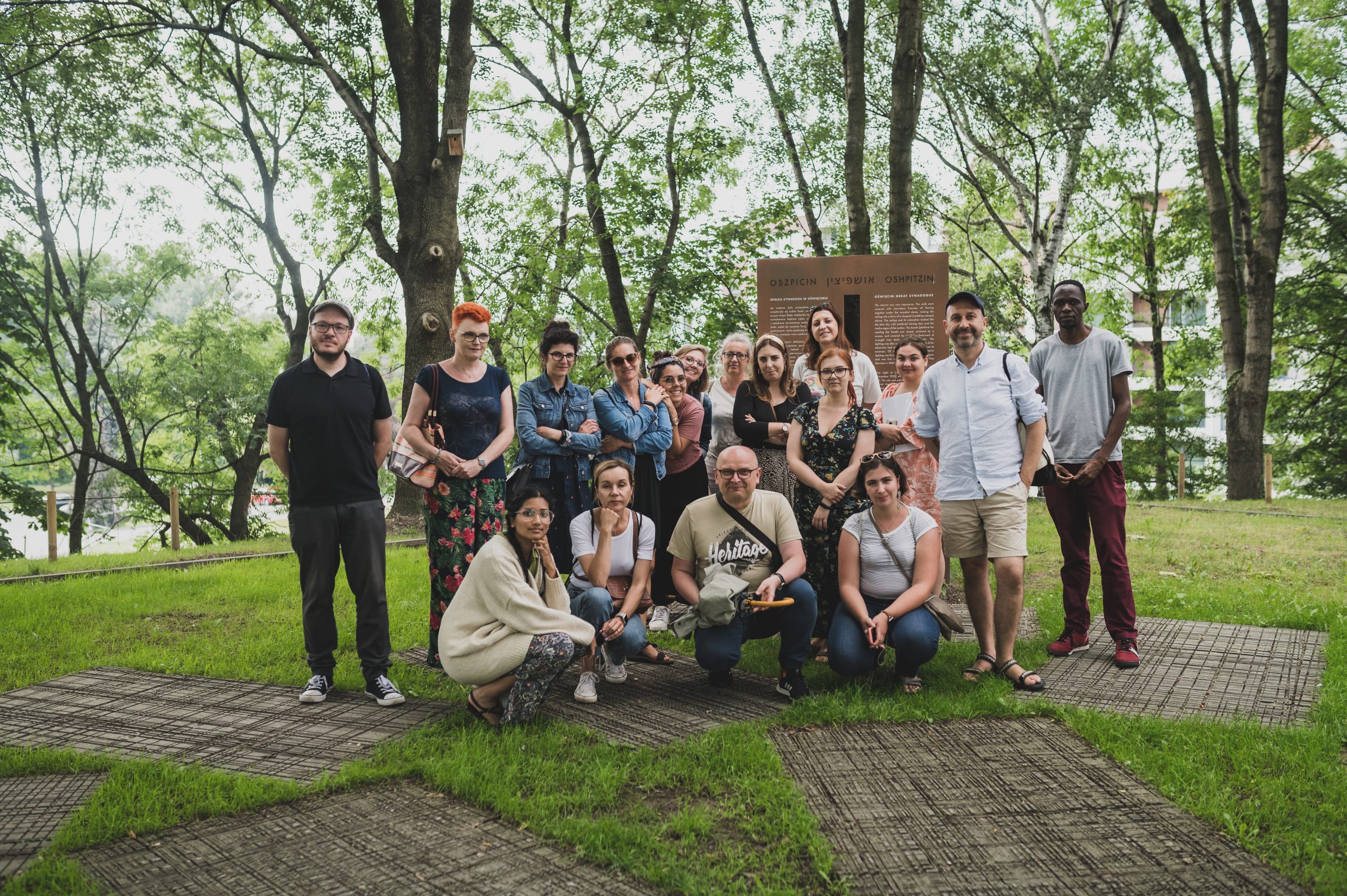
There are many untold stories. Perhaps some of them will be uncovered and restored to the public memory. This is the last moment to ask witnesses and hear first-hand testimonies. The participants of the “Untold Stories | Forgotten Places of Memory” project were very privileged to be able to meet a witness of history, Mrs Lidia Maksymowicz, a former prisoner of Birkenau.
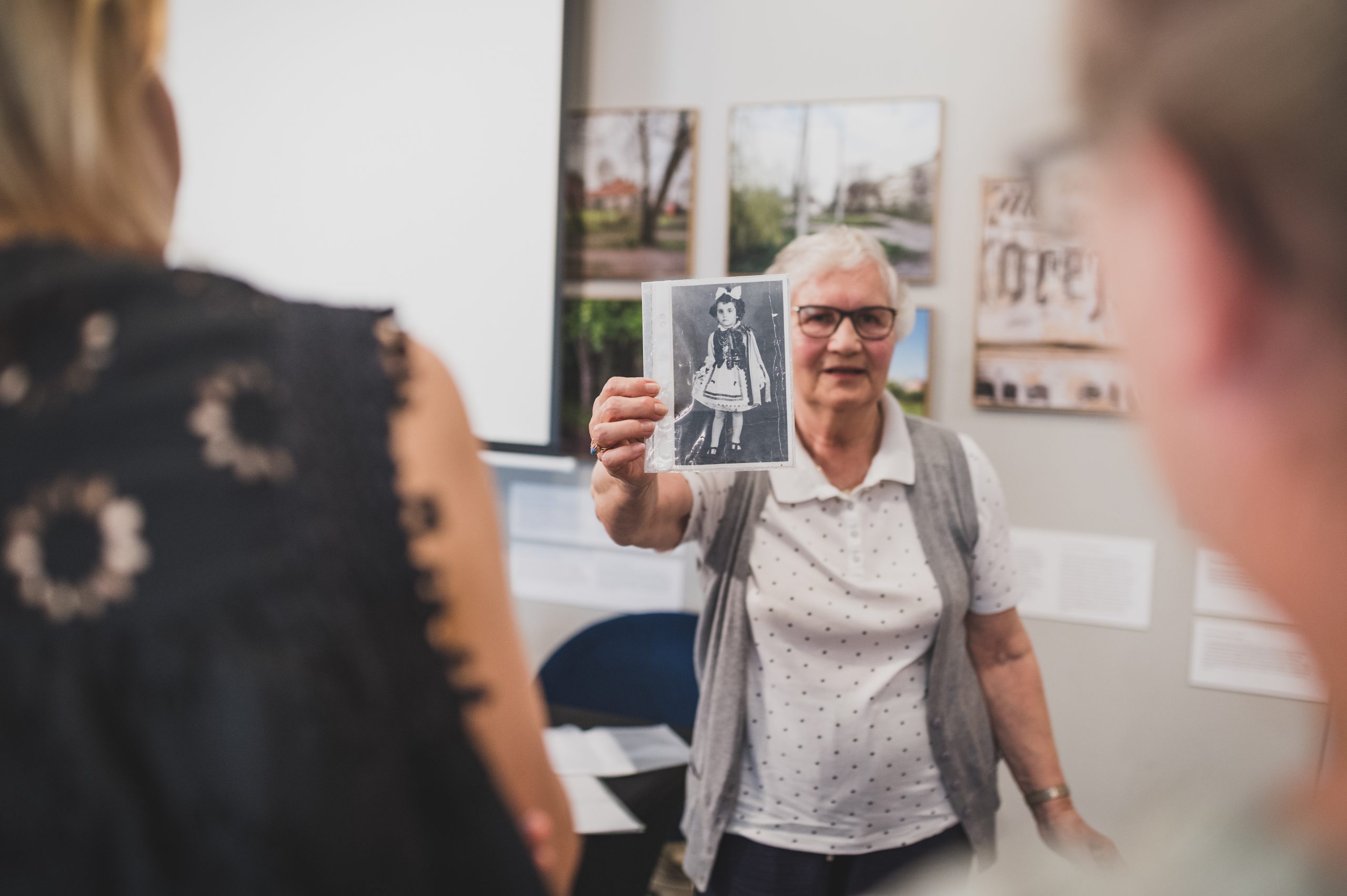
The personal story told by Mrs Maksymowicz was not only moving but also compelled reflection, not only on the past but also on the present and the future. She referred to the current situation in Ukraine and emphasised the importance of education, and knowledge of history so that the statement “Never again” is not just an empty phrase.
This meeting was extremely important, eye-opening and, for many, transformative.
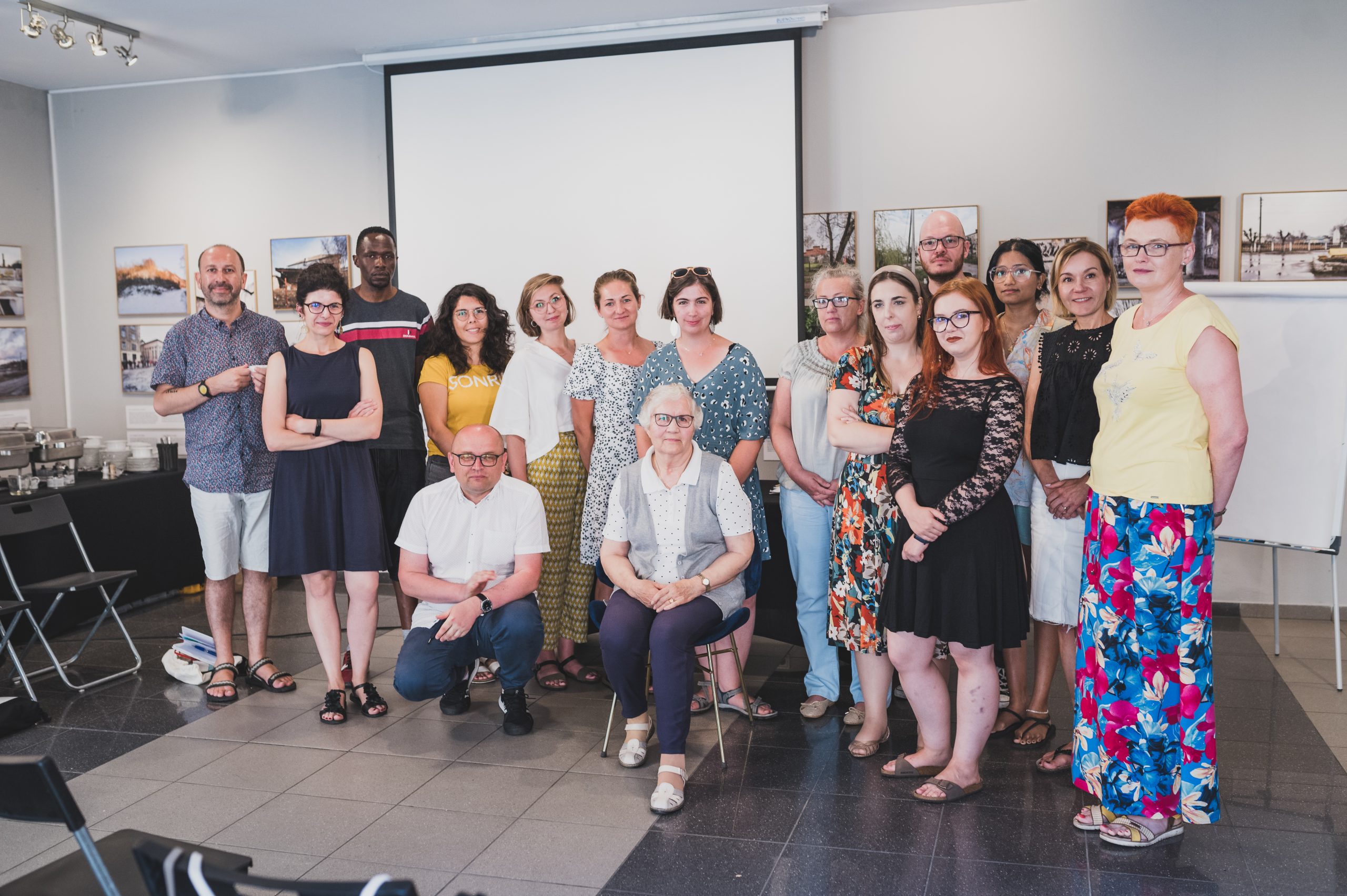
Although we refer to history in our “Untold Stories | Forgotten Places of Memory” project, we pay attention to contemporary challenges teachers face in their daily work.
During the workshop “How to actively support the LGBTIQ community – practical workshops” led by Dr Marzanna Pogorzelska (Opole University), the participants acquired knowledge and skills related to practical methods of supporting the LGBTIQ community, particularly young people who are still at school.

We talked about the functioning of LGBTIQ students in the school context, examples of everyday interactions showing teachers’ active acceptance, ways of reacting to violence, abusive and non-abusive language, and examples of school activities aimed at supporting LGBTIQ rights. This workshop was really important because, as one of the participants said:
>> “This topic is a taboo for some and thus the current discrimination against people is not properly looked upon.”
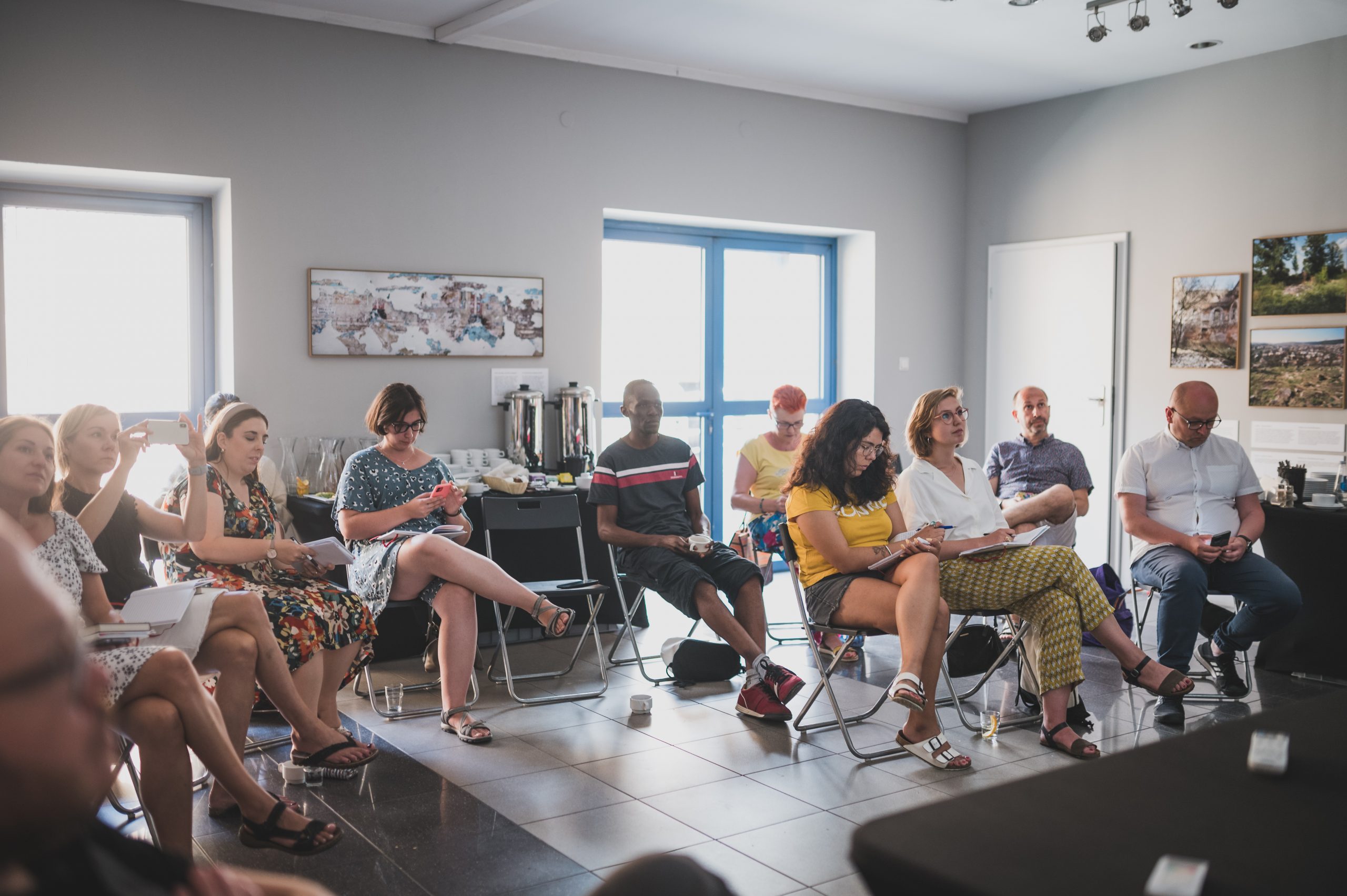
Apart from meetings and workshops with invited guests, we also worked together every day in workshops led by Larysa Michalska, coordinator of the “Untold Stories | Forgotten Places of Memory” project’s Teachers Training. These activities allowed the participants to strengthen their relationships, support the group process and, on the other hand, learn many tools and working methods that can be helpful when creating educational materials.
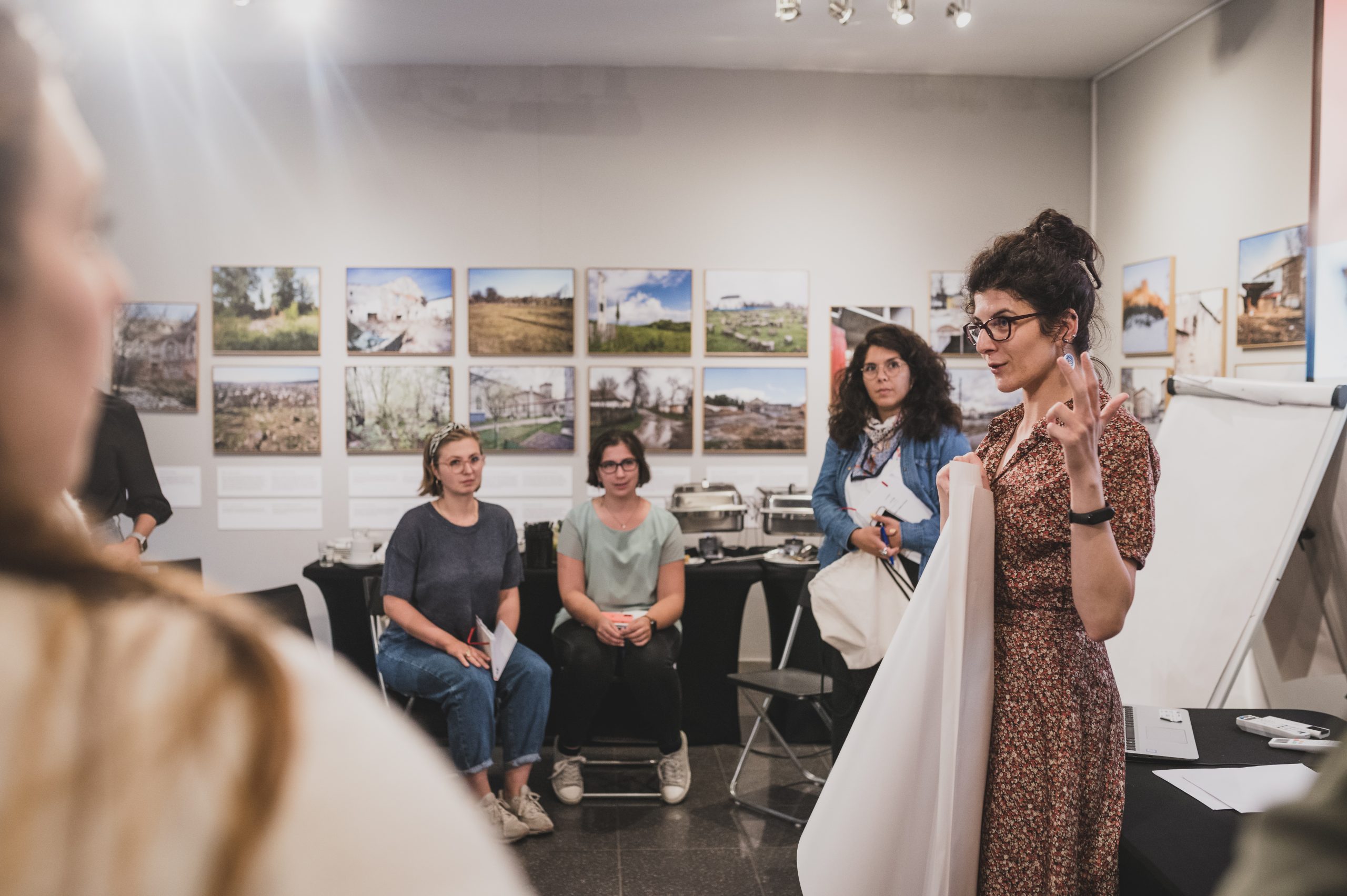
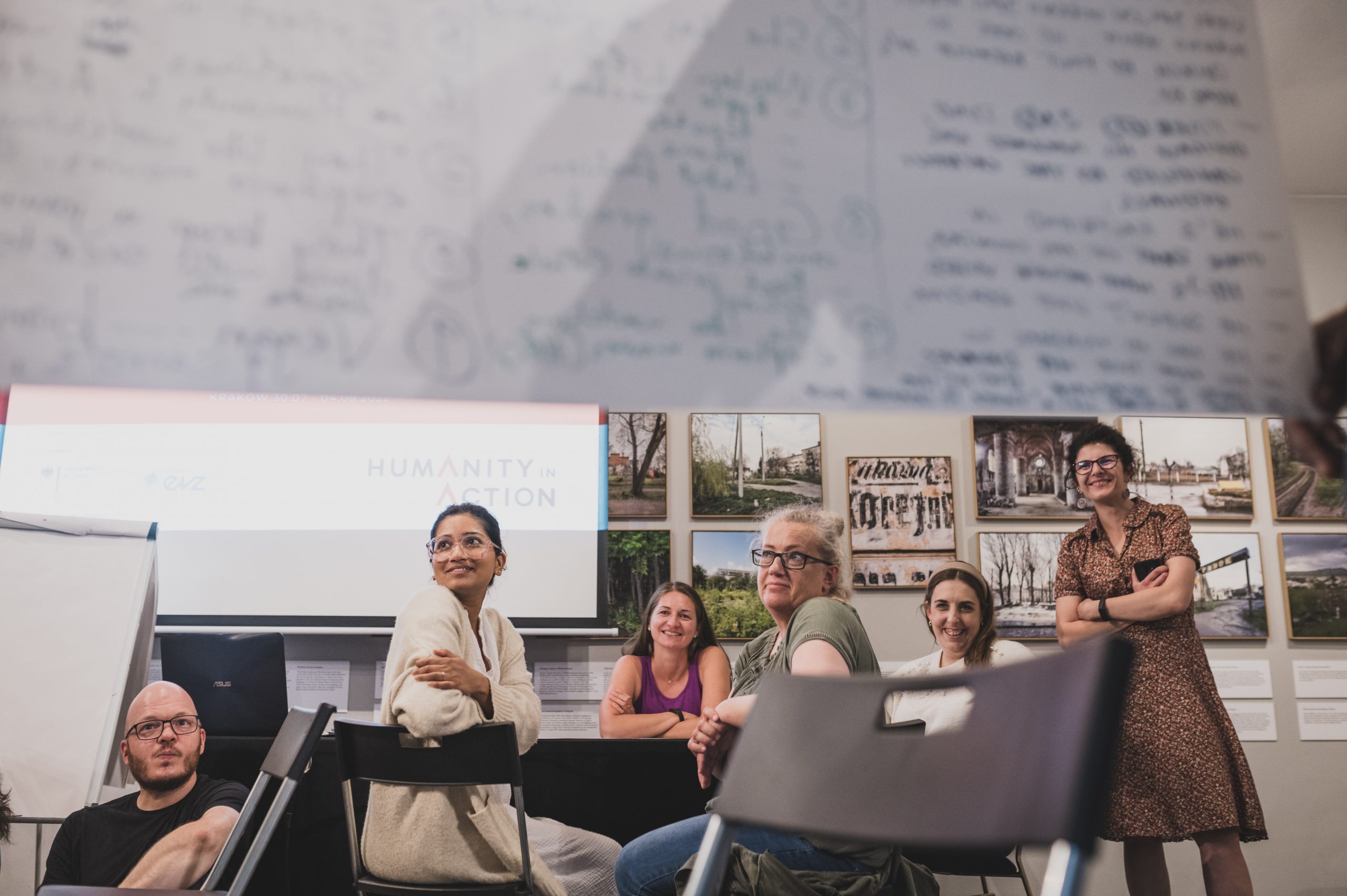
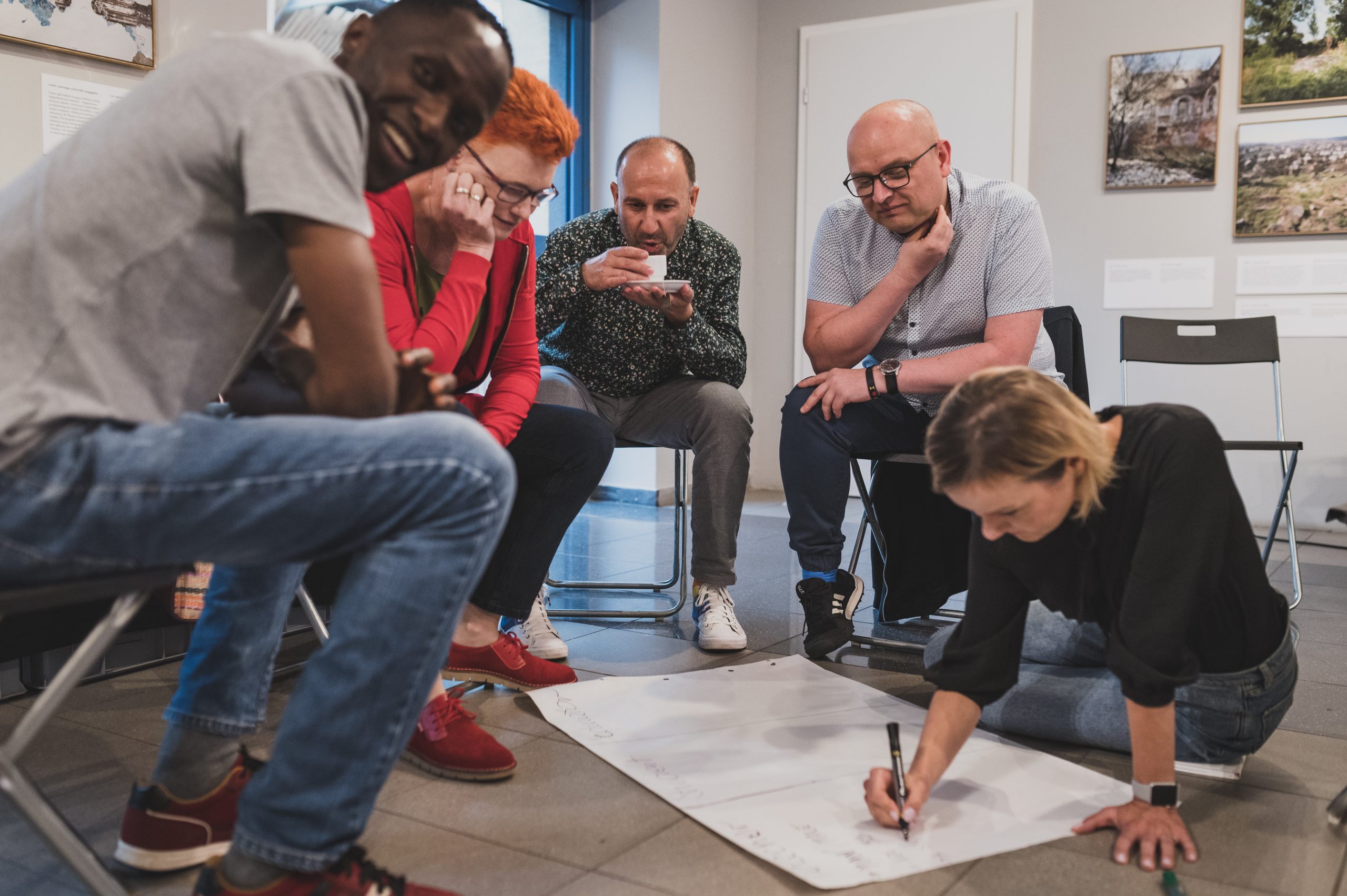
One of them is the website www.10krokow.org, which was created to complement our activist-educational app 10 STAGES. On the website, you will find even more biographies of people who did not remain indifferent during the Second World War.
Despite difficult topics, a complicated history and many emotional moments, our sessions were also full of good energy and support for each other. Because that is one of the aims of our project – to build a safe and open space for the exchange of ideas and experiences. With such a base, teachers and educators can develop their knowledge and competencies to educate the next generations in an interesting, innovative and free of prejudices way.
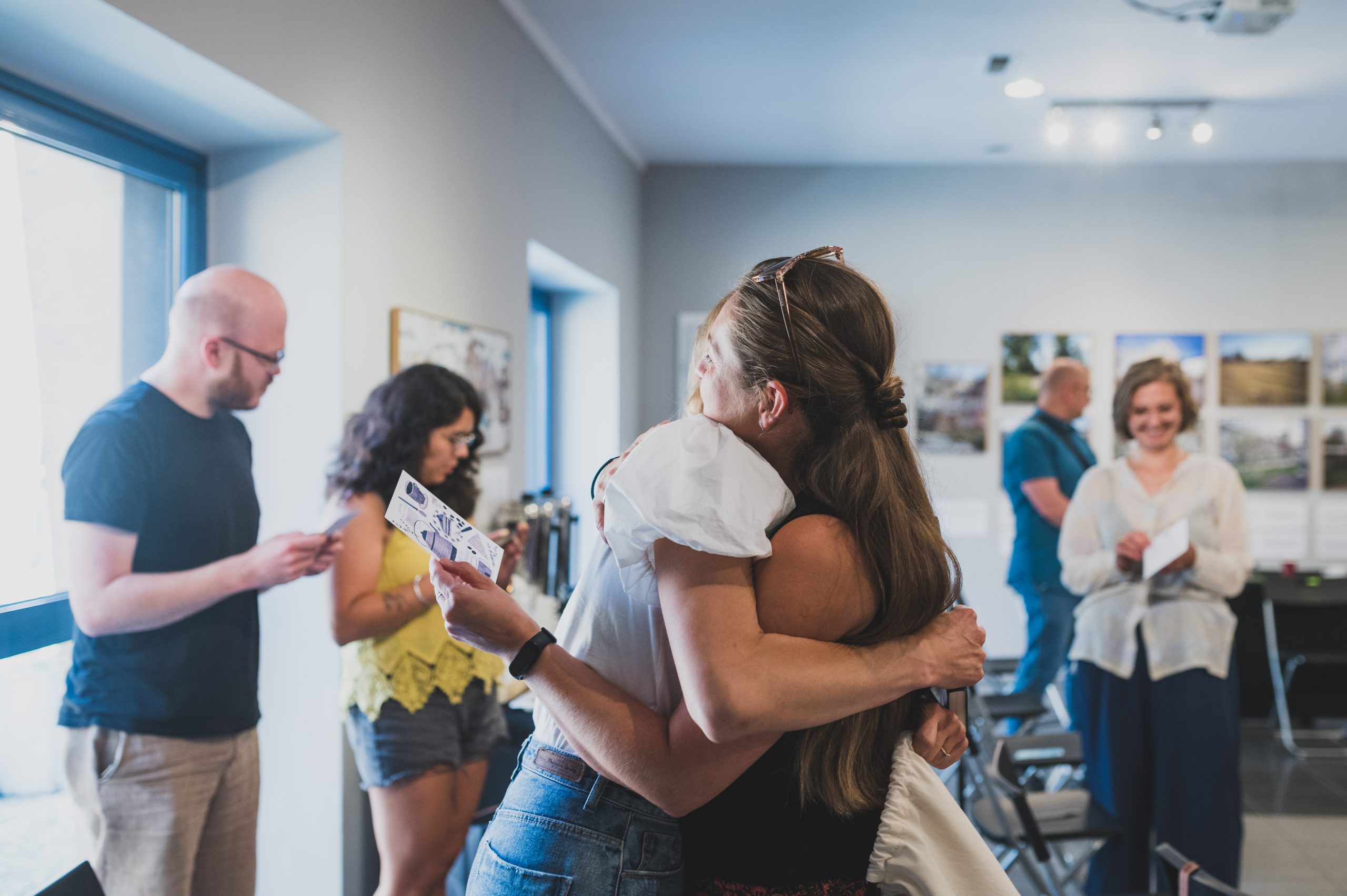
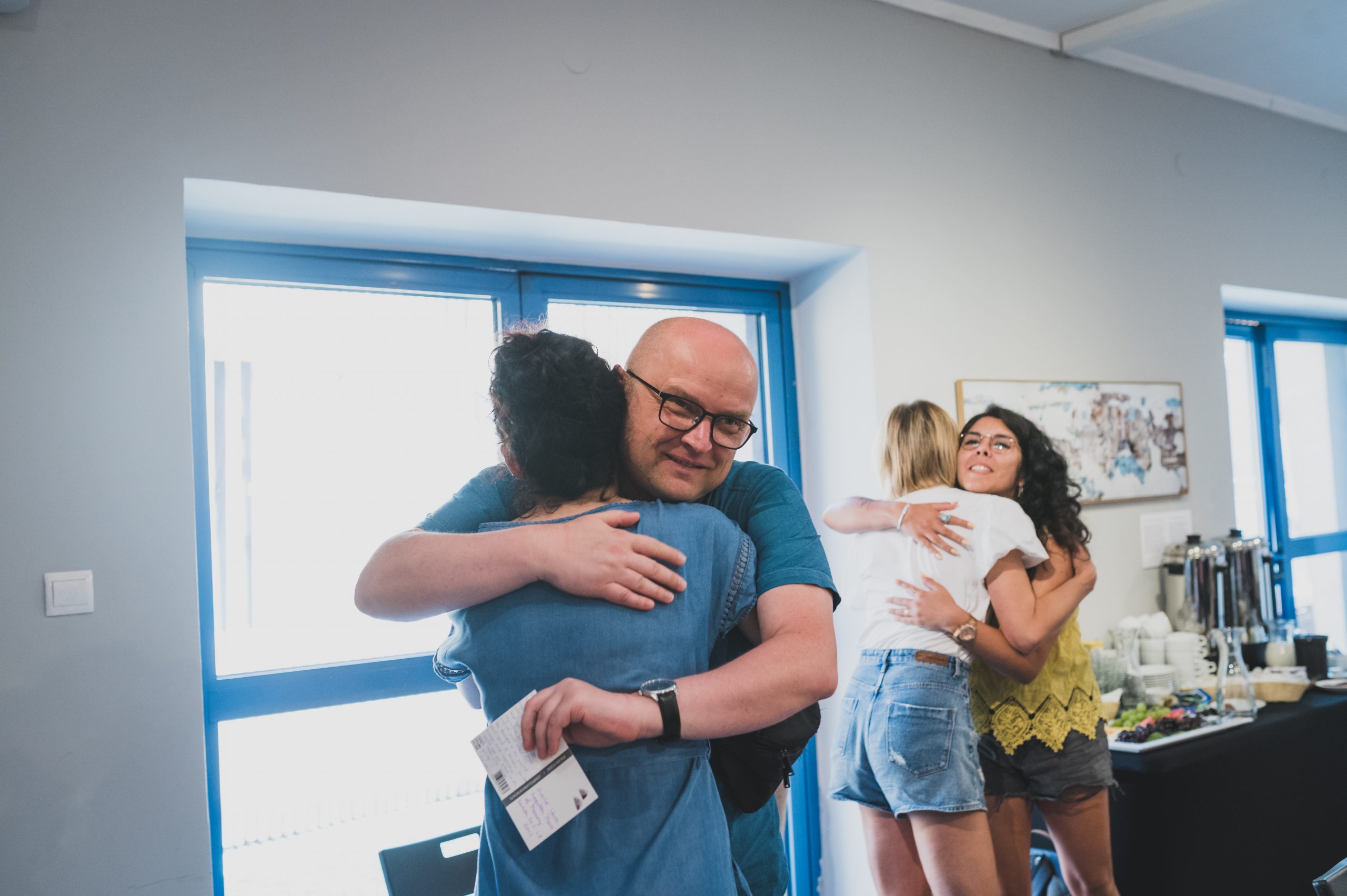
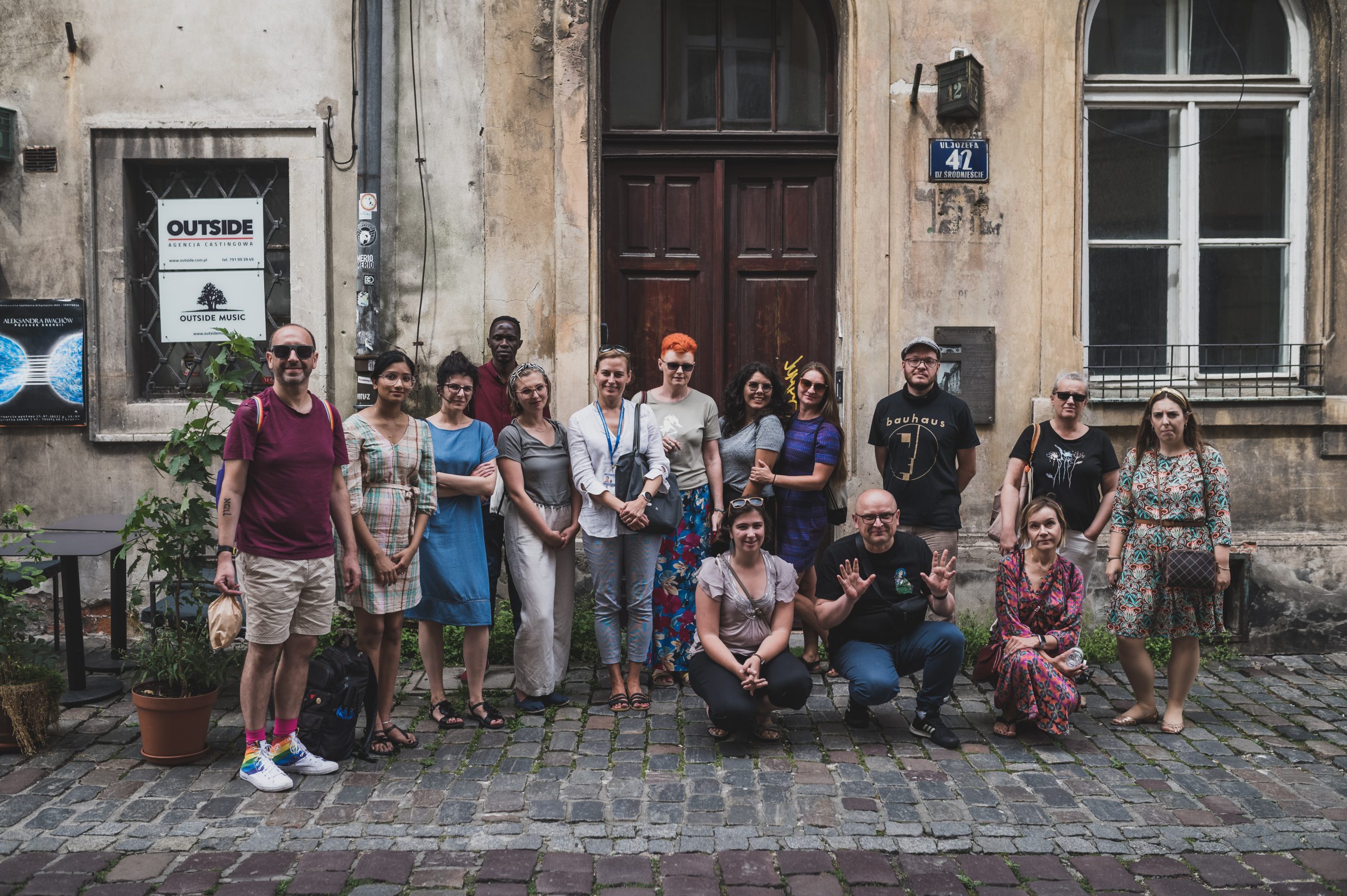
The project “Untold Stories | Forgotten Places of Memory” is carried out in cooperation with Humanity in Action Germany and Humanity in Action Netherlands.
#TeacherTraining #HIA #HIAFellows #HumanityinAction #UntoldStories #ForgottenPlaces
